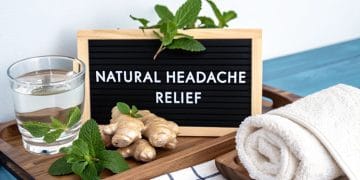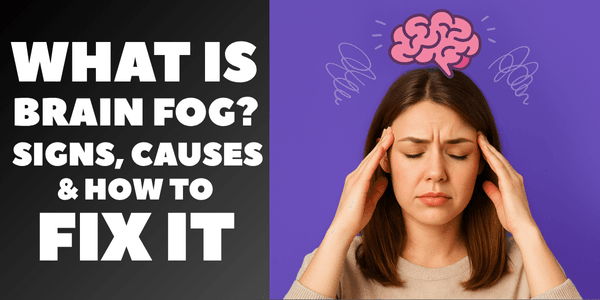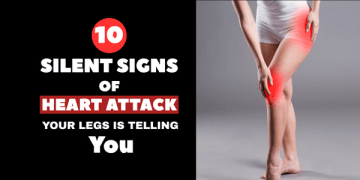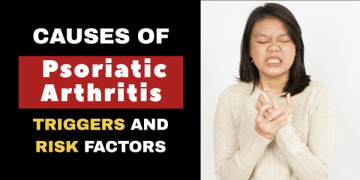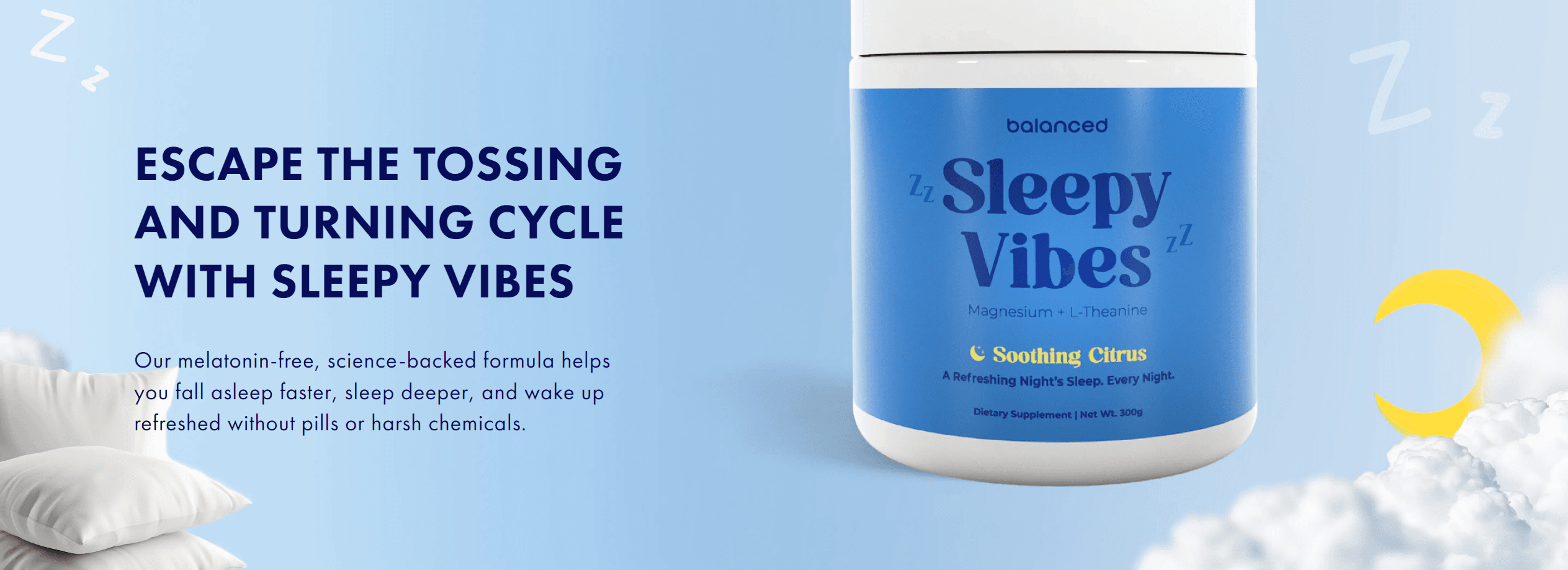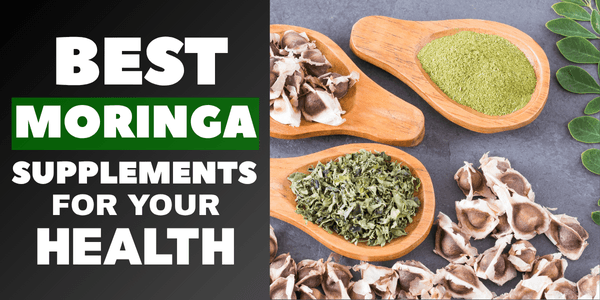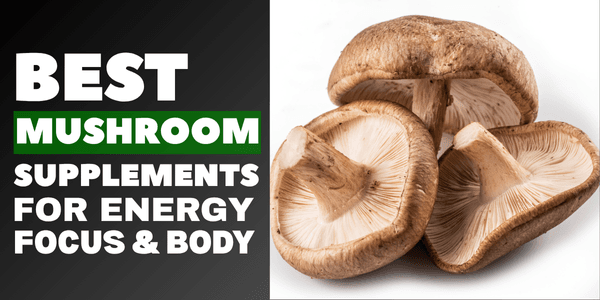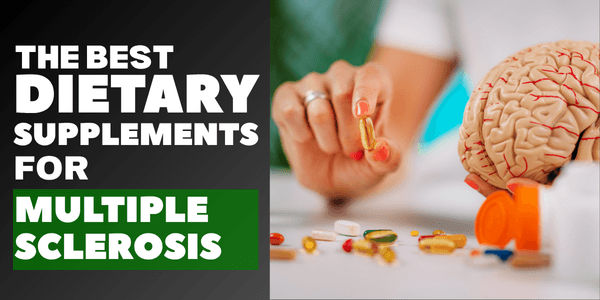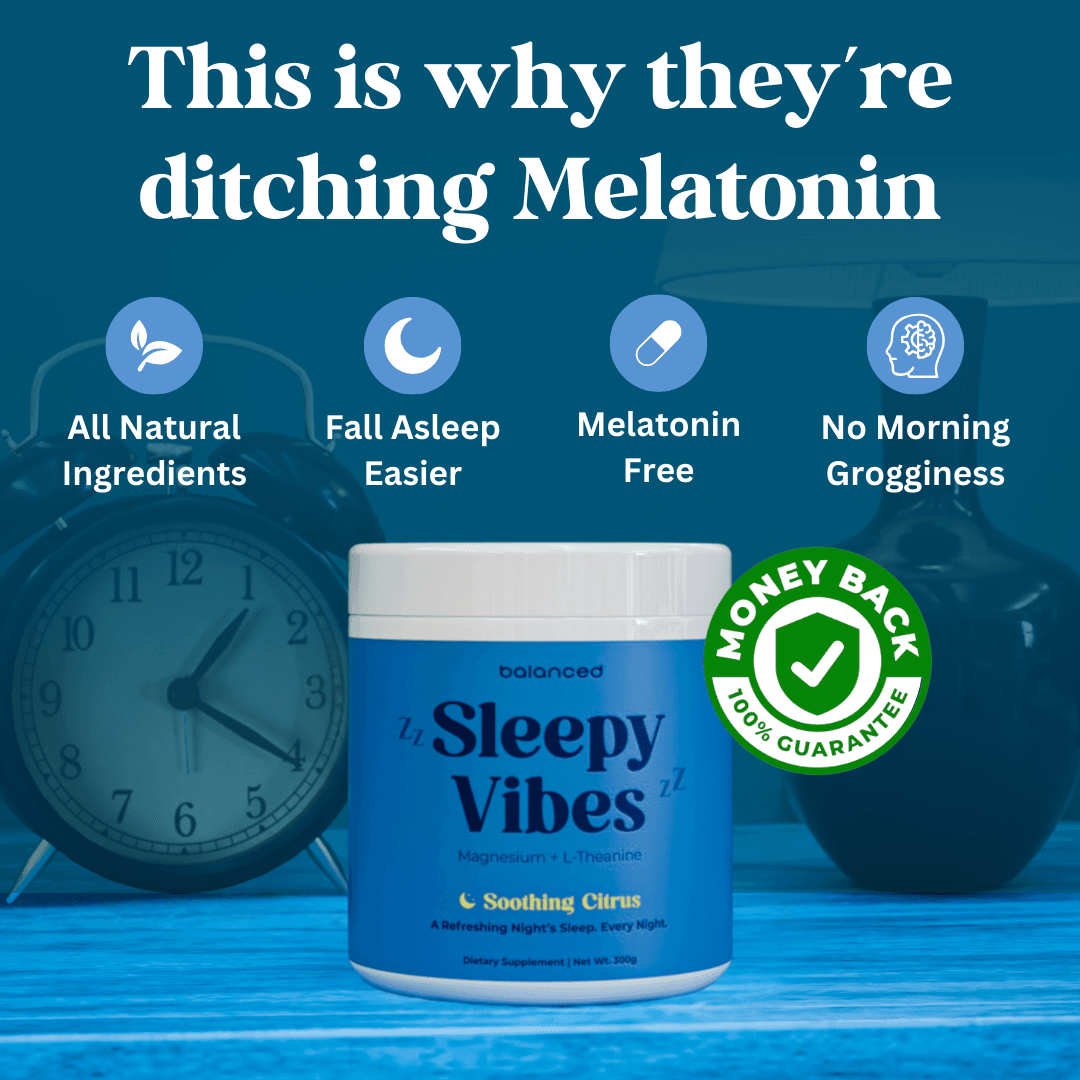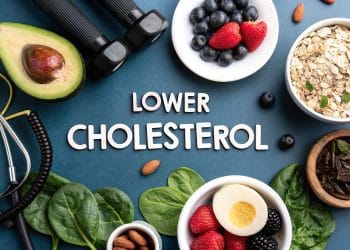Last Updated on May 22, 2024 by Lauretta Iyamu, PharmD
Do you often feel tired, stressed, or worried about your health? These might be signs that you’re not getting enough nutrients. Ignoring these signs can cause more serious health issues later on, so taking action now is important [1].
Taking care of your health can be tough, with busy schedules and diets that don’t always provide all the nutrients you need.
In this post, you’ll learn about the best supplements to take for overall health. This will help you make smart choices to improve your daily routine and feel better.
What are supplements?
Supplements are products made to increase your intake of essential nutrients. They help you get the nutrients you might miss from your food.
I used to feel tired all the time until I started taking the right supplements. They made a big difference in my energy levels and overall health.
Many people miss out on important vitamins and minerals, which can lead to health problems [2].
Dietary supplements are well known for addressing these nutrient deficiencies. However, the FDA does not regulate them under the Dietary Supplement Health and Education Act.
Fortified foods can provide essential vitamins and nutrients, especially for those on specific diets, such as vegan or plant-based.
Supplements can help fill these nutritional gaps and support overall health. They can also increase energy and improve well-being [3].
However, be cautious with certain supplements, as some, like beta-carotene, can increase lung cancer risk in smokers.
Learn about the types of supplements and how they can help you stay healthy and feel great.
Types of supplements
Vitamins:
Vitamins are essential ingredients that your body needs to work correctly. They help you grow, heal, and stay healthy.
Vitamin E, a fat-soluble vitamin, is important for organ function and has antioxidant benefits that keep the immune system strong, dilate blood vessels, and prevent blood clots.
However, high doses of vitamin E supplements can be dangerous, so it’s important to consult a healthcare professional before taking them.
Minerals:
Minerals are elements like calcium or iron used to perform functions such as keeping bones strong and helping muscles move.
Amino Acids:
Amino acids are the parts that make up proteins. Your body uses them to build muscle and make other vital molecules that keep you running smoothly.
Why Supplements Are Important
Supplements help maintain overall health by filling nutritional gaps and supporting body functions.
Even with a balanced diet, getting your body’s nutrients is challenging.
Supplements like Vitamin D and Omega-3 fatty acids ensure you get enough of these key nutrients.
Healthy fats, such as omega-3s, are important in maintaining overall health by supporting heart and brain function.
Sometimes, you need extra supplements.
For example, vegetarians might need vitamin B12, and pregnant women often need folic acid.
People with special diets or health conditions might also benefit from supplements.
How to Choose the Right Supplements
Picking the right supplements can be tricky. With so many options available, knowing what to look for is important.
Choosing high-quality supplements can make a big difference in your health.
Look for supplements that have been tested for safety and quality.
Check for certifications like NSF, USP, and GMP. These labels mean the product has met high standards [9].
Bioavailability is another key factor. This indicates how well your body can absorb the supplement.
Some forms are easier for your body to use than others [10].
Top Supplements for Overall Health
Multivitamins
Benefits:
Multivitamins provide a mix of essential vitamins and minerals. They help cover any gaps in your diet.
Recommended dosage:
Follow the dosage instructions on the product label or as your healthcare provider recommends.
Tips for choosing:
Look for a high-quality multivitamin that suits your age and gender [11].
Omega-3 Fatty Acids
Benefits:
Omega-3 fatty acids are important for heart health and brain function. They help reduce inflammation and support overall well-being [2].
Recommended dosage:
Take 250–500 mg of combined EPA and DHA daily, as your healthcare provider recommends.
Best sources and forms:
Fish oil supplements are a good source of omega-3s. Look for high-quality, purified fish oil supplements [12].
Vitamin D
Benefits:
Vitamin D is essential for bone and immune support. It helps the body absorb calcium, which is crucial for strong bones [3].
Elderly individuals, particularly those on a restricted diet, healthy adults who are housebound, individuals with darker skin pigmentation, and those who cover their skin for cultural reasons, are at risk of vitamin D deficiency.
It is recommended that these groups consider vitamin D supplements.
Recommended dosage:
Take 600–800 IU daily or as your healthcare provider recommends.
Sources and tips:
You can get vitamin D from sunlight, but supplements are a great way to ensure you’re getting enough. Look for vitamin D3 supplements [13].
Probiotics
Benefits:
Probiotics support digestive health and improve your immune system. They add good bacteria to your gut and help with digestion and overall health [14].
Recommended dosage
Take 1–10 billion CFUs daily, or as your healthcare provider recommends.
Different strains and their benefits
For the best results, look for probiotics that contain a variety of strains, such as Lactobacillus and Bifidobacterium [15].
Magnesium
Benefits:
Magnesium is vital for muscle and nerve function. It also helps with energy production [16].
Recommended dosage:
Take 310–420 mg daily, or as your doctor recommends.
Forms and absorption rates:
Magnesium citrate and magnesium glycinate are easily absorbed forms of magnesium [17].
Vitamin C
Benefits:
Vitamin C supports your immune system and acts as an antioxidant. It helps protect your cells from damage [18].
Recommended dosage:
Take 75–90 mg daily, or as your healthcare provider recommends.
Dietary sources and forms:
Vitamin C is found in fruits like oranges and strawberries, but supplements can ensure you get enough [19].
B Vitamins
Benefits:
B-vitamins are important for energy production and brain health. They help convert food into energy and support your nervous system [20].
Recommended dosage:
Follow the dosage instructions on the product label or as your health professional recommends.
Individual B Vitamins vs. B-Complex
A B-complex supplement can provide all the B vitamins your body needs, or you can take individual B vitamins depending on your needs [21].
Adding Vitamins and Mineral Supplements to Your Lifestyle
Supplements with Diet
To get the most out of your vitamin supplements, you should consider how you combine them with food.
These tips ensure that your supplements work well with your meals and daily routine, helping you get the best potential benefits possible.
- Fat-Soluble Vitamins: Vitamins A, D, E, and K work best with meals with fats like olive oil, nuts, or avocados.
- Iron and Vitamin C: To help your body absorb iron better, take iron supplements with something rich in vitamin C, like orange juice.
- Calcium and Magnesium: These two minerals can compete for absorption. If you need high doses of either, take them at different times of the day.
- Probiotics and Meals: Eating probiotics with a meal can help protect the good bacteria as they move through your stomach.
Additional Tips:
- Protein shakes and workouts: If you use protein powders or amino acids like BCAAs, have them right after your workout to help with muscle recovery.
- Fiber and Minerals: Fiber can block minerals like zinc and iron from being absorbed well. Try to take fiber supplements or eat high-fiber foods a few hours apart from these minerals.
- Green Tea and Iron: Love green tea? Drink it between meals instead of with them, as it can stop your body from absorbing iron effectively.
- Calcium and Thyroid Meds: If you take thyroid medication, avoid high-calcium foods or supplements for several hours before and after your medication.
- Turmeric and Black Pepper: To boost the benefits of turmeric supplements, add a little black pepper to increase absorption.
Lifestyle Factors
Adding supplements to your lifestyle involves more than deciding which to take to meet your health goals.
It requires a thorough understanding of your health needs, lifestyle factors, and ongoing adjustments based on your body’s ability and health status.
Here’s a comprehensive guide to doing just that:
Folic Acid for Pregnancy and Breastfeeding
- Increased nutrient needs: During pregnancy and breastfeeding, your body needs more nutrients to prevent birth defects and support the baby’s development and the mother’s health. These nutrients include folic acid, iron, calcium, and omega-3 fatty acids.
- Safety First: Not all supplements are safe during pregnancy and breastfeeding. For example, excessive doses of vitamin A can harm the fetus. Always consult a doctor or pharmacist before you take any new supplement during these periods.
Aging
- Absorption challenges: Research shows that your body may need to absorb nutrients more effectively as you age. Vitamin B12 is a common concern, as many older adults need higher amounts or more readily absorbable forms due to decreased stomach acid production.
- Bone health: As people age, bones can weaken, making calcium and vitamin D supplements crucial to helping prevent osteoporosis.
Children and Teenagers
- Growth and development: Children and teenagers have different nutritional requirements for rapid growth and development. Supplements like vitamin D for bone health and omega-3 fatty acids for cognitive development can be beneficial.
- Form and dosage: Ensure supplements are appropriate for the child’s age and size, particularly in the right dosage and form (e.g., chewable tablets for younger children).
Athletes
- Higher energy requirements: Due to increased energy expenditure and the need for muscle repair and recovery, athletes may need to consume a high amount of certain nutrients, such as protein, iron, and antioxidants, at adequate levels to maintain good health.
- Electrolyte balance: Taking vitamins and supplements that maintain electrolyte balance, like sodium, potassium, and magnesium, are needed during prolonged physical activity to prevent cramps and dehydration.
Vegan or Vegetarian Diets
- Essential nutrient considerations: If you’re following a vegan diet, you need to be particularly mindful of other nutrients that are primarily found in animal products, such as vitamin B12, iron, calcium, and omega-3 fatty acids.
- Supplement choice: Vegan-friendly supplements, such as algae-based omega-3 supplements instead of fish oil, can help fill nutritional gaps.
Personal Health Conditions
- Chronic diseases: If you have chronic conditions like high blood sugar, prostate cancer, high blood pressure, heart disease, or Crohn’s disease, your nutritional needs might differ. For example, people with kidney disease must manage their potassium levels carefully.
- Medication interactions: Always check with your health professionals before taking supplements to avoid high intake. For instance, St. John’s Wort can decrease the effectiveness of contraceptives.
Environmental Factors
- Sun exposure: Vitamin D is crucial and is primarily obtained through sun exposure. Those in less sunny climates or who don’t spend much time outdoors may need to supplement their vitamin D intake.
- Pollution: If you live in a highly polluted area, antioxidants like vitamins C and E can help combat the effects of environmental toxins.
Regular Monitoring and Adjustment
- Blood tests: Regular blood tests can help you adjust your supplements to meet your health needs. For instance, checking your red blood cells and vitamin D levels can determine if your supplementation is sufficient.
- Lifestyle changes: Any significant changes, such as a new diet or exercise routine, might require adjustments in your supplement regimen.
- Aging: As you age, your nutrient absorption capabilities and requirements change. It’s important to periodically review and adjust your supplement intake accordingly.
Staying Informed
- Educate yourself: Keep up with the latest scientific studies on nutritional supplements through reputable health information sources or discussions with your general practitioner or pharmacist.
- Choose quality: Go for high-quality supplements from trusted manufacturers. Look for USP or NSF International certifications to ensure product safety and effectiveness.
Avoiding Interactions
When you take supplements, ensure they don’t interfere with your other medicines or cause unwanted side effects.
Here’s a simple guide to help you avoid problems and keep your supplements and drugs working well together.
Types of Interactions
- Medicines and Supplements:
Some supplements can make drugs less effective or cause harmful effects.
For example, calcium can block the absorption of some antibiotics, making them less effective, and St. John’s Wort can make birth control pills work less well. - Supplements and supplements:
Some supplements can also interact when taken together.
For instance, too much zinc can interfere with how your body uses copper. - Over-the-counter drugs:
Just like prescription drugs, everyday drugs you buy without a prescription can also react badly to some supplements.
For example, ginkgo biloba, a joint herbal supplement, can increase the risk of bleeding if you take it with an over-the-counter pain reliever like ibuprofen.
How to Avoid Problems
- Talk to your doctor or pharmacist. Before you start taking any new supplement, it’s a good idea to talk about it with your healthcare provider, especially if you’re already taking other medicines.
- Spacing out doses: Sometimes, taking supplements and drugs at different times of the day can prevent them from interacting. If a supplement interferes with your medicine’s absorption, taking them a few hours apart might help.
- Learn about your supplements. Knowing what effects your supplements could have on other drugs you take can help you avoid problems. You can find reliable information from your doctor, pharmacist, or trusted health websites.
- Watch for signs: Pay attention to how you feel after you start a new supplement or medicine. If you notice anything unusual, like feeling very tired, upset stomach, dizziness, or if your heart starts beating faster, these could be signs of an interaction.
Special Tips
- For people with chronic illnesses: If you have long-term health issues like heart disease or diabetes, be extra careful when taking certain vitamins because you might already be taking too many medications that can lead to interactions.
- For older adults: Your body might handle drugs and supplements differently if you’re older. Because many older adults take multiple medications, interactions are more likely.
Common Supplement Interactions
Understanding how supplements interact with your medications and each other is important. This understanding helps ensure that your treatments work correctly and that you stay safe.
Let’s look at some examples of common supplement interactions and tips on how to handle them:
1. Vitamin K and blood thinners:
Vitamin K helps your blood clot. However, if you’re taking blood thinners like warfarin, a high intake of vitamin K can make these medicines less effective.
Try to keep your vitamin K intake the same each day.
2. Calcium and Iron:
These minerals are great for your health, but they don’t mix well. Calcium can stop your body from absorbing iron properly.
It’s best to take them a few hours apart.
3. St. John’s Wort and Other Medicines:
St. John’s Wort can make many prescription drugs less effective, including birth control pills and some antidepressants.
It also speeds up the body’s elimination of these medicines.
4. Antioxidants and Chemotherapy:
Taking supplements high in antioxidants might make chemotherapy less effective. These supplements can protect not only healthy cells but also cancer cells from the treatments.
How to Safely Manage Supplement Use
- Talk to your doctor. Talk with your healthcare provider before taking new mineral supplements, especially if you have already taken medications. They can help you understand how to safely use supplements without affecting your medications.
- Regular check-ups: As your health changes or as you start or stop medications, the way supplements affect you can also change. Check in with your doctor regularly to help manage these changes safely.
- Keep a supplement and medication list. Write down all the medications and supplements you take, and show this list to each of your healthcare providers. This helps them see the whole picture and gives you the best advice.
Having this checklist is very helpful to guide you on what to look out for and discuss with your doctor
Common Nutrient Deficiencies and Their Symptoms
Knowing the signs of insufficient vitamins or mineral supplements can help you stay healthy.
Here’s a guide to help you understand common nutrient deficiencies, their symptoms, and when to get help:
Iron:
If you always feel tired, look pale, and get short of breath quickly, you might need more iron.
Iron helps your blood carry oxygen.
Vitamin D:
Feeling tired, experiencing muscle weakness, feeling sad, or experiencing aches could mean you need more vitamin D.
It’s essential for strong bone health and a healthy immune system.
Magnesium:
If you have muscle cramps, feel shaky, or get upset quickly, your body might be low in magnesium.
This mineral helps with over 300 body processes.
Vitamin B12:
Signs of low B12 include feeling very tired, dizzy, having heart palpitations, and feeling numb.
B12 is crucial for nerves and blood cells.
Calcium:
If your nails break easily, you get muscle cramps, or you notice your fingers tingling, you might need more calcium.
It strengthens bones and teeth and helps muscles and nerves work properly.
Omega-3 Fatty Acids:
Dry skin, dry eyes, difficulty concentrating, and joint discomfort could indicate a low intake of omega-3s, which are good for the heart, brain, and joints.
Vitamin C:
Easy bruising, swollen gums, frequent nosebleeds, and slow healing are signs you might need more vitamin C.
It helps your immune system and keeps your skin healthy.
Zinc:
If you lose hair, get diarrhea, heal slowly from wounds, or get sick often, you might need more Zinc.
It’s good for your immune system and your skin.
Iodine:
Gaining weight unexpectedly, feeling tired, or having a swollen neck might mean you need iodine.
It helps your thyroid, which controls your metabolism.
Vitamin A:
Problems seeing at night, dehydrated skin, and frequent infections could be signs that you need more vitamin A.
It’s essential for your eyesight and immune system.
Potassium:
A low potassium level might indicate muscle weakness, cramping, fatigue, and digestive problems.
This mineral helps your muscles and heart work properly.
When to See a Doctor
- If symptoms don’t improve: If changing your diet or taking supplements doesn’t help your symptoms, it’s time to see a doctor.
- Severe symptoms: If you have serious symptoms, such as severe pain, significant changes in your heartbeat, or sudden weight changes, get medical help immediately.
- Regular checks: It’s good to have regular check-ups if your diet or health changes, like if you become pregnant or start a new diet.
Conclusion
Supplements can help fill nutritional gaps, support overall health, and improve well-being. They are especially useful for those with specific dietary needs or health conditions [14].
Because everyone’s nutritional needs are different, choosing high-quality supplements and working with your healthcare provider to personalize your supplement regimen can help you achieve the best results for your health [16].
References
- “The Benefits of Omega-3 Fatty Acids for Heart Health.” American Heart Association, 2020.
- Huskisson, E., et al., “The Role of Vitamins and Minerals in Energy Metabolism and Well-Being.” Journal of International Medical Research, vol. 35, no. 3, May 2007, pp. 277–89.
- “Vitamin D and Bone Health: A Comprehensive Review.” Osteoporosis International, vol. 30, no. 5, 2018, pp. 1011–1023.
- “Understanding Nutritional Gaps in Modern Diets.” Nutrition Today, vol. 55, no. 3, 2020, pp. 112-120.
- “The Importance of Supplements in Special Diets.” Journal of Dietetics and Nutrition, vol. 60, no. 2, 2021, pp. 98–104.
- “How Supplements Support Overall Health.” Health and Wellness Journal, vol. 52, no. 1, 2019, pp. 35–42.
- “Vitamin D and Omega-3 Fatty Acids: Important Nutrients for Health.” Clinical Nutrition Insights, vol. 48, no. 4, 2020, pp. 45–52.
- “Supplement Needs for Vegetarians and Pregnant Women.” Journal of Nutrition and Health, vol. 59, no. 2, 2021, pp. 75–82.
- “Certifications to Look for in Quality Supplements.” Consumer Health Digest, vol. 28, no. 3, 2020, pp. 90–95.
- “Understanding Bioavailability in Supplements.” Nutrition Science Review, vol. 64, no. 2, 2019, pp. 25–30.
- “Choosing the Right Multivitamin.” Journal of Nutritional Science and Vitaminology, vol. 67, no. 1, 2021, pp. 35–45.
- “Fish Oil Supplements: Benefits and Risks.” Journal of Clinical Nutrition, vol. 66, no. 5, 2019, pp. 310–317.
- “The Importance of Vitamin D Supplementation.” Medical Nutrition Journal, vol. 45, no. 1, 2019, pp. 15–22.
- “The Role of Probiotics in Digestive Health.” Journal of Gastroenterology, vol. 27, no. 3, 2019, pp. 345–356.
- “Magnesium’s Role in Muscle and Nerve Function.” Nutritional Medicine Journal, vol. 50, no. 1, 2020, pp. 55–60.
- “Vitamin C: Benefits and Sources.” Journal of Nutrition Science, vol. 47, no. 2, 2019, pp. 115–120.
- “The Importance of B Vitamins for Health.” Medical Nutrition Journal, vol. 56, no. 1, 2021, pp. 22–28.
- “The Impact of Antioxidants on Health,” Journal of Antioxidant Research, vol. 58, no. 3, 2020, pp. 135–150.
- “Calcium and Bone Health: A Comprehensive Guide.” Bone Health Journal, vol. 63, no. 4, 2019, pp. 210–225.
- “Zinc’s Role in Immune Function.” Immunology and Health, vol. 52, no. 2, 2021, pp. 112-130.
- “The Effects of Vitamin A on Vision and Immunity.” Ophthalmology and Health, vol. 49, no. 1, 2019, pp. 75–90.
- “Vitamin C and Immune Function: A Review.” Nutrients, vol. 11, no. 2, 2019, pp. 250–260.
- “Dietary Sources of Vitamin C.” Journal of Food and Nutrition, vol. 56, no. 3, 2020, pp. 145–155.
- Peterson, Christine Tara, et al., “B Vitamins and Their Role in Immune Regulation and Cancer,” Nutrients, vol. 12, no. 11, Nov. 2020, p. 3380.
- Hanna, Mary, et al., “B Vitamins: Functions and Uses in Medicine.” The Permanente Journal, vol. 26, no. 2, pp. 89–97.

